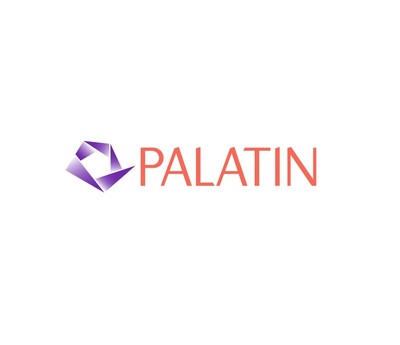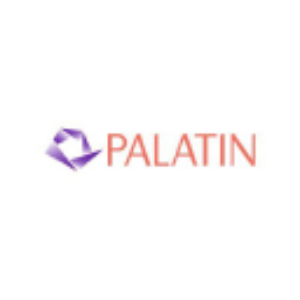Palatin Announces Initiation of Pivotal Phase 3 PL9643 MELODY-1 Clinical Trial in Patients with Dry Eye Disease
Palatin Technologies (NYSE American: PTN) has commenced the pivotal Phase 3 MELODY-1 clinical study for PL9643, targeting dry eye disease. This multi-center study will enroll up to 400 patients across the U.S., with top-line results expected in the second half of 2022. Following positive Phase 2 results, Palatin has coordinated with the FDA on study design and key elements necessary for potential New Drug Application (NDA) filings. The Phase 3 program is categorized as a significant milestone for both the company and patients.
- Initiation of Phase 3 MELODY-1 study for PL9643 targeting dry eye disease.
- Study designed based on positive Phase 2 results and FDA agreement.
- Potential NDA submission anticipated in the first half of 2024.
- None.
Insights
Analyzing...
CRANBURY, N.J., Dec. 28, 2021 /PRNewswire/ -- Palatin Technologies, Inc. (NYSE American: PTN), a specialized biopharmaceutical company developing first-in-class medicines based on molecules that modulate the activity of the melanocortin peptide receptor system, announced the initiation of the pivotal Phase 3 MELODY-1 clinical study of PL9643 in patients with dry eye disease. The study is designed to enroll up to 400 patients at multiple U.S. sites, and top-line results are currently expected second half calendar 2022.
"We are excited to initiate the MELODY-1 study of PL9643 in patients suffering from dry eye disease," said Carl Spana, Ph.D., CEO and President of Palatin. "This is the second melanocortin peptide Palatin has advanced into Phase 3, demonstrating Palatin's expertise and efficiency in melanocortin peptide development for indications with unmet medical need."
The pivotal Phase 3 MELODY-1 clinical study is a multi-center, randomized, double–masked and vehicle–controlled study evaluating the safety and efficacy of the melanocortin agonist, PL9643 ophthalmic solution, compared to vehicle in subjects with dry eye disease (DED). The study design is based on positive Phase 2 results of PL9643 for the treatment of dry eye disease, and an end-of-phase 2 (EOP2) meeting with the with the U.S. Food and Drug Administration (FDA), reaching agreement on all key elements of a pivotal Phase 3 clinical program, including study design, endpoints, interim assessment, and patient population. In addition, to support a New Drug Application (NDA) filing, a second phase 3 study (MELODY-2) and long-term safety study (MELODY-3) will be required. If the program progresses as planned, top-line results from MELODY-1 would be available second half calendar 2022, MELODY-2 data read out second half calendar 2023, with a potential NDA submission first half calendar 2024.
"Progressing PL9643 into Phase 3 is a significant milestone for the Company and patients with DED," said Michael Raizman, MD, Chief Medical Officer of Palatin. "PL9643, with its differentiating factors, could provide a more tolerable and effective treatment option for patients suffering from dry eye disease."
About Dry Eye Disease (DED)
Dry eye disease is a common inflammatory disease that, left untreated, can become extremely painful and lead to permanent damage to the cornea and vision. Dry eye disease affects the cornea and conjunctiva of the eye resulting in irritation, redness, pain, and blurred vision. It is estimated to affect over 20 million people in the United States. The disease is characterized by insufficient moisture and lubrication in the anterior surface of the eye, leading to dryness, inflammation, pain, discomfort, irritation, diminished quality of life, and in severe cases, permanent vision impairment. Existing therapy for dry eye disease is generally regarded as inadequate by many physicians and patients, and often requires week or months to demonstrate activity.
About Melanocortin Receptor Agonists and Inflammation
The melanocortin receptor ("MCr") system has effects on inflammation, immune system responses, metabolism, food intake, and sexual function. There are five melanocortin receptors, MC1r through MC5r. Modulation of these receptors, through use of receptor-specific agonists, which activate receptor function, or receptor-specific antagonists, which block receptor function, can have medically significant pharmacological effects.
Many tissues and immune cells located in the eye (and other places, for example the gut and kidney) express melanocortin receptors, empowering our opportunity to directly activate natural pathways to resolve disease inflammation.
About Palatin
Palatin is a biopharmaceutical company developing first-in-class medicines based on molecules that modulate the activity of the melanocortin and natriuretic peptide receptor systems, with targeted, receptor-specific product candidates for the treatment of diseases with significant unmet medical need and commercial potential. Palatin's strategy is to develop products and then form marketing collaborations with industry leaders to maximize their commercial potential. For additional information regarding Palatin, please visit Palatin's website at www.palatin.com and follow Palatin on Twitter at @PalatinTech.
Forward-looking Statements
Statements in this press release that are not historical facts, including statements about future expectations of Palatin, such as statements about clinical trial plans and potential results for clinical or pre-clinical programs, are "forward-looking statements" within the meaning of Section 27A of the Securities Act of 1933, Section 21E of the Securities Exchange Act of 1934 and as that term is defined in the Private Securities Litigation Reform Act of 1995. Palatin intends that such forward-looking statements be subject to the safe harbors created thereby. Such forward-looking statements involve known and unknown risks, uncertainties and other factors that could cause Palatin's actual results to be materially different from its historical results or from any results expressed or implied by such forward-looking statements. Palatin's actual results may differ materially from those discussed in the forward-looking statements for reasons including, but not limited to, results of clinical trials, regulatory actions by the FDA and other regulatory and the need for regulatory approvals, Palatin's ability to fund development of its technology and establish and successfully complete clinical trials, the length of time and cost required to complete clinical trials and submit applications for regulatory approvals, products developed by competing pharmaceutical, biopharmaceutical and biotechnology companies, commercial acceptance of Palatin's products, and other factors discussed in Palatin's periodic filings with the Securities and Exchange Commission. Palatin is not responsible for updating for events that occur after the date of this press release.
![]() View original content to download multimedia:https://www.prnewswire.com/news-releases/palatin-announces-initiation-of-pivotal-phase-3-pl9643-melody-1-clinical-trial-in-patients-with-dry-eye-disease-301451121.html
View original content to download multimedia:https://www.prnewswire.com/news-releases/palatin-announces-initiation-of-pivotal-phase-3-pl9643-melody-1-clinical-trial-in-patients-with-dry-eye-disease-301451121.html
SOURCE Palatin Technologies, Inc.








